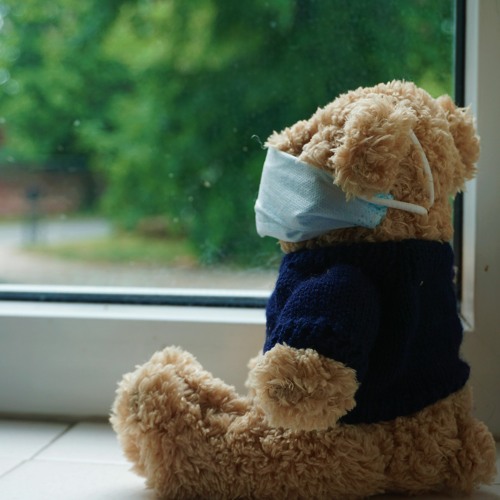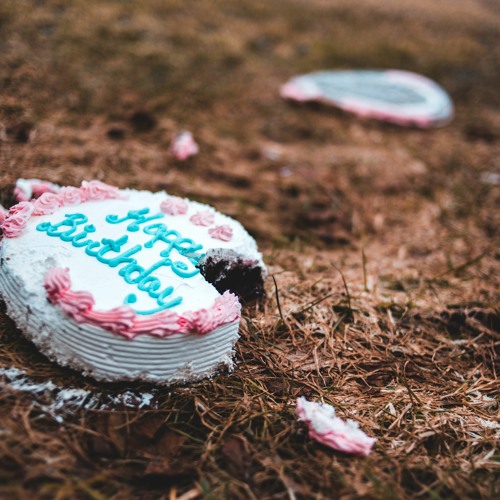In this episode, hear about why we left, how we left, our last two London adventures, and the toll London took on Craig’s mental health.
— Olive Senior ‘I’m quite alright with that’ (Not Quite Right For Us)
My images of London are illusions.
My two years in London was a mess from go to whoa. I understand that moving to the UK a month before the outbreak of a global pandemic and the subsequent isolating lockdowns wasn’t in my control, but the fallout from all of that took its toll. Even with London by Lockdown in my corner — which was designed to connect me with the people and places around me — at times I floundered. I started doubting myself, my art, my sense of self. I love living in cities. I was excited to move there, but, as a migrant, I couldn’t get a lock on London. The place is never still. London’s a shyster, never commits to one thing or another, a chameleon wearing a wolf’s skin and dressed in sheep’s clothing. A nervous energy infuses it, always fidgeting, twitching, tapping a finger, jumping between random topics, foot tapping, leg shaking up and down under the table.
London sits at the base of a bowl in a sedimentary basin, where over the years all the rivers have been turned into sewers and all the forests cut down. When you’re looking up from the bottom of this hole, it’s hard to see beyond the rim. And yet, those rivers, they haven’t been completely silenced, because parts of London are sinking. Just down from us, walking along Deptford’s streets, near the Thames, the streets inundate and flood with only the lightest of rain. When homes are literally just staying above the water, it’s hard to do more than survive.
The difficulty in navigating London (and English culture more broadly) is that there’s a tilt to its familiarity; it was just askew enough to make everything well-known both awkward and confusing without my being able to put my finger on anything specific. Shona and I knew we were moving to live in the belly of the Colonial Beast before we even left Australia, but I didn’t realise how ingrained colonial ways of thinking are and how celebrated colonialism is — without too much self-reflection. That might seem harsh, and I understand that post-Covid London was never going to be like the pre-Covid city, but the official city that elevates only certain artefacts of culture, art, knowledge or history — that city persists through time and thrives on the facade that someone somewhere in London is having a blast, while the rest of us, who are just getting by, are somehow missing out. London’s lie is the opposite of terra nullius: the legal concept used by Colonial powers to steal ‘empty territories’ that were in fact not empty. I was caught in-between cultures and times. London’s illusion is that there’s something more than there is. London took my mental health and spat it out onto the ground where it was left to decompose.
If this sounds like I left London hating the place, that’s not true and it wouldn’t be fair to tar all of London with the same brush. My feelings are complicated and my experiences are complex. I don’t hate it, but I don’t love the place either, and, to be honest, I’m not indifferent — there is something about London that sends some people mad, I’m sure of it. Some days I wish we were still there and that I could have made a go of it. Sometimes I check out the socials and when I see photos of the streets I used to call home I yearn to be back there. Then on other days I remember the Covid shitshow or how London made me feel empty and lesser, and I’m so glad I’m on the other side of the world.
London by Lockdown, then, if I’m being kind, is a beautifully fragmented love letter memoir lament celebration. So, on those days when I was feeling more than a little anxious, it was in the bustle of places like Lewisham, Deptford, New Cross, Peckham or Brixton where I wandered the streets and found a calmness in anonymity (which sounds counterintuitive given part of my melt down was because I felt so isolated). These places, historically inhabited by so many outsiders, have a human scale that made London, if only in those few brief hours, feel right.
Links
The Covid-19 Bereaved Families for Justice are collecting audio testimonies. E: [email protected]
Led by Donkeys; Twitter: @ByDonkeys; FB & IG: @ledbydonkeys
Guardian article: Wall of Love
Little Amal and Walk With Amal: @walkwithamal (FB, Twitts, IG, TickTock)
London’s Migration Museum, Lewisham
Video of Rodney Kelly (Gweagal man) visiting the Headstone of Darug Tribesman Yemmerrawanyea
You can find that beautiful song on the Sovereign Union page
Museum of Slavery and Freedom, Deptford, London
Black Cultural Archives, Brixton
Music & SFX
Opening & Closing Credits by Unregistered Master Builder
Additional SFX and Music by Epidemic Sound
Touching Moments by Ketsa (Free Music Archive)
Mental Health Resources
How to Access Mental Health Services (NHS site)
Contact us
Facebook: @CraigsAudioWorks
Twitter & Instagram: @LDNbylockdown

In this episode we see if Craig can make a new friend during lockdown. ************************** Between mid 1990 and early 1991 I had a...

It’s almost the end of 2020. As a special gift for getting through a hard year, in this bonus episode we share one of...

How much Iso birthday fun can two people have? ************************** I arrived four weeks early: induced, tiny, underfed. My ‘origin story’, according to my...